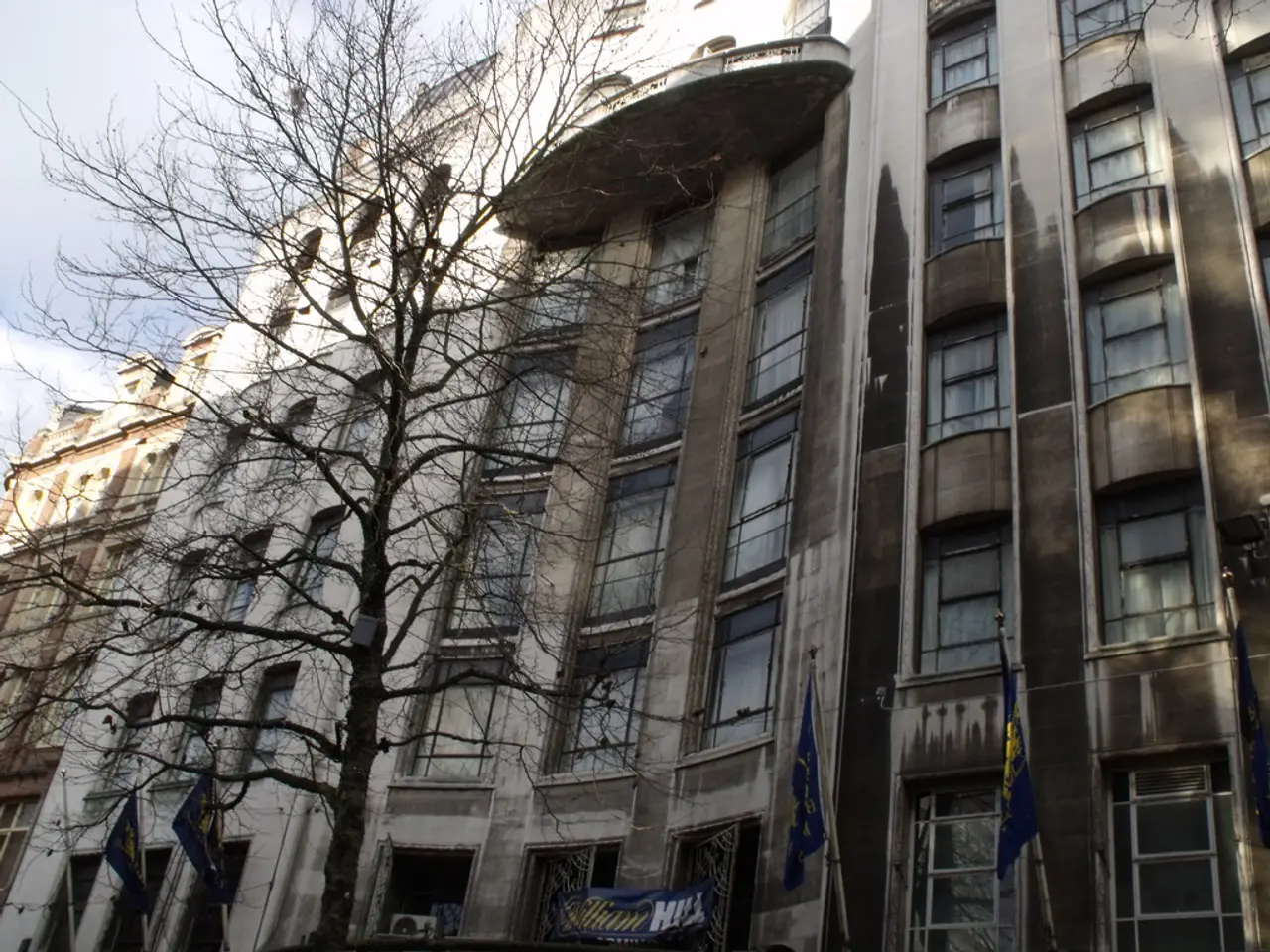Progress and community-driven growth
In the heart of Germany, the city of Augsburg is setting an example for sustainable development. The city's third Sustainability Report, published in 2025, showcases its commitment to a future-proof and livable city.
The report, containing 88 indicators, focuses on measures related to the "Future Guidelines for Augsburg," a systematic set of goals adopted by the city council in 2015 and updated in 2021. These guidelines serve as the basis for Augsburg's sustainable development efforts.
The process involves organizing events, developing and implementing model projects, creating materials, and formulating recommendations. Key institutions like the University of Augsburg and regional industries play central roles in this endeavour.
The University of Augsburg guides its sustainability efforts as a core profile. A major expansion of photovoltaic (PV) systems is planned from 2023 to 2026, prioritizing key buildings like physics, mathematics, and business faculties to increase renewable energy use on campus.
Augsburg's sustainability strategies extend beyond academia. Decarbonization initiatives, such as those at Audi's nearby production sites, exemplify regional efforts. The focus spans decarbonization, water use efficiency, resource efficiency, and biodiversity, setting an industrial benchmark for sustainable manufacturing in the region.
Biodiversity protection is another key focus area. Industrial and academic partners support biodiversity through actions such as maintaining habitats for pollinators and integrating nature-based solutions on production sites and in urban or campus environments.
Regional infrastructure and economic sustainability are also priorities. Augsburg is part of the southern German dual-use logistics corridor (Augsburg-Ingolstadt-Regensburg), designed to be economically resilient and support military mobility. This corridor strengthens the local economy and infrastructure sustainability by facilitating efficient goods flow and incorporating future-ready logistics.
The city's dedication to sustainability has not gone unnoticed. In 2013, Augsburg was awarded the German Sustainability Award, recognising it as the most sustainable large city.
Residents of Augsburg are actively involved in the Local Agenda 21 process, promoting sustainable development in the city. Various organisations, including environmental and fair trade groups, educational and research institutions, church groups, business representatives, political representatives, city administration, and others, participate in this process.
The recommendations for the city council, city administration, and the wider city society are made through the Sustainability Board. Local Agenda working groups organise events and develop model projects to further these recommendations.
With its multi-faceted approach, combining academia, industry, and infrastructure, Augsburg is advancing sustainability by focusing on renewable energy, carbon neutrality, natural resource conservation, and resilient regional development towards 2030 and beyond.
- The University of Augsburg, a key player in the city's sustainability endeavors, plans to increase the use of renewable energy on campus by majorly expanding photovoltaic (PV) systems from 2023 to 2026, highlighting its commitment to environmental-science and sustainable-living within home-and-garden settings.
- Beyond academia, industrial partners such as Audi's production sites in the region demonstrate sustainable-living practices by focusing on decarbonization, water use efficiency, resource efficiency, and biodiversity, setting an example for climate-change combating efforts in environmental-science.
- As part of its strategy, Augsburg collaborates with regional institutions to support biodiversity through initiatives like maintaining pollinator habitats and integrating nature-based solutions into production sites and urban or campus environments, enhancing the city's overall lifestyle and promoting sustainability.






